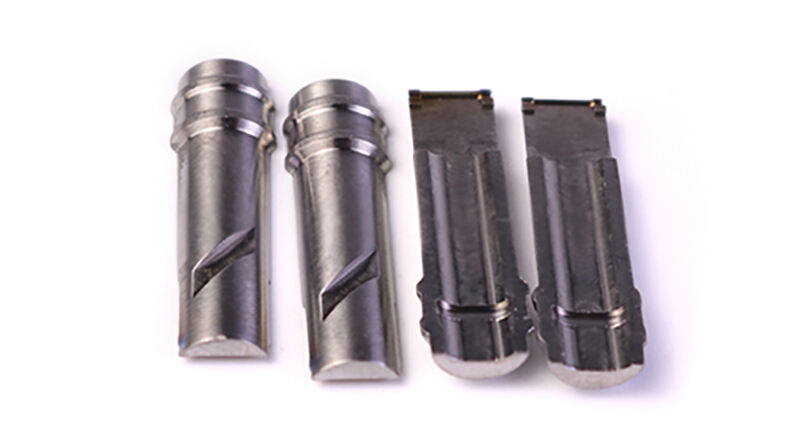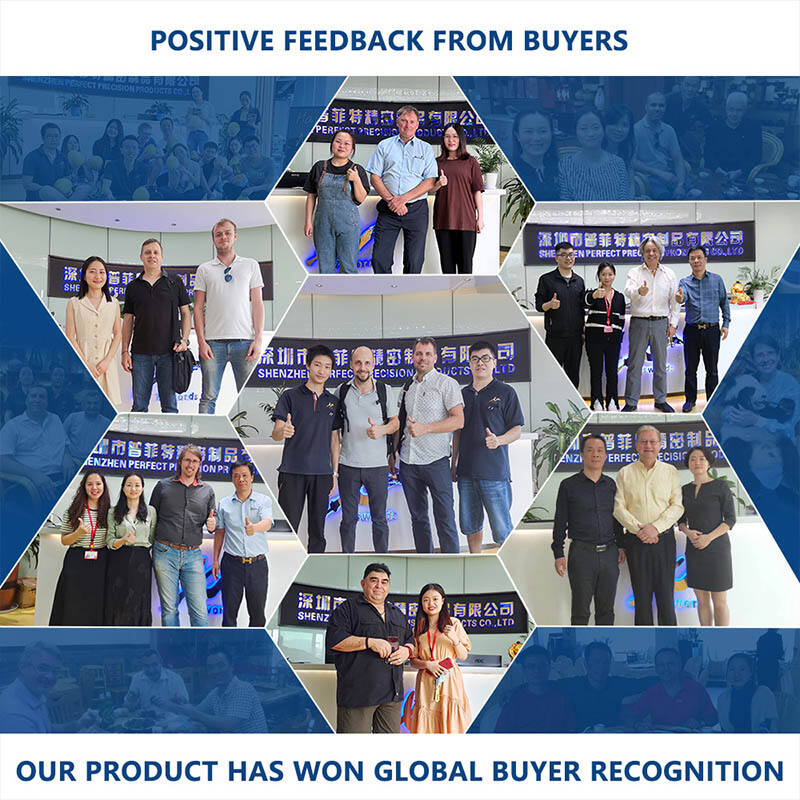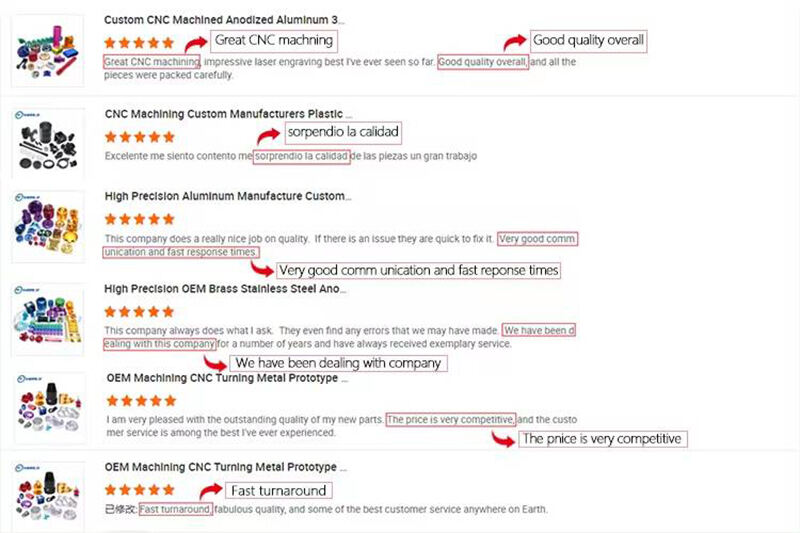Building 49, Fumin Industrial Park, Pinghu Village, Longgang District
Neděle zavřeno
Typ: Brokování, VRTĚNÍ, Eróze / Chemická obrábění, Laserové obrábění, Frézování, Jiné služby obrábění, Tocení, Drátová elektroeroze (Wire EDM), Rychlé prototypování
Mikroobrábění nebo nikoliv mikroobrábění
Číslo modelu: Vlastní
Materiál: Titánová slitina
Kontrola kvality: Vysoká kvalita
MOQ: 1 ks
Dodací doba: 7-15 dní
OEM/ODM: OEM ODM CNC frézování tocení služby
Naše služby: Vlastní obráběcí CNC služby
Osvědčení: ISO9001:2015/ISO13485:2016
V stále se měnící letecké průmyslové oblasti je poptávka po součástech, které kombinují lehkou hmotnost s výjimečnou pevností a odolností, vyšší než kdy dříve. Přesné frézovací části z titanové slitiny jsou klíčem k splnění těchto přísných požadavků. Tyto pokrokové součásti jsou nezbytné v kritických leteckých aplikacích, kde spolehlivost, výkon a redukce hmotnosti nejsou jednankou. V tomto článku se podíváme na výhody, aplikace a přínosy přesných frézovacích částí z titanové slitiny a proč jsou volbou číslo jedna pro nejžádanější letecké aplikace.

Obrábění CNC je technologický proces, při kterém rotuje počítačově řízená soustruh z pracovního kusu ze stainlessové oceli, zatímco fréza ho tvaruje podle konkrétních návrhových požadavků. Tento proces je neuvěřitelně přesný a umožňuje výrobci vytvářet díly s úzkými tolerancemi a složitými geometriemi, které by bylo obtížné dosáhnout tradičními ručními metodami. Díly z vysokoprávnostní stainlessové oceli vyrobené CNC obráběním jsou komponenty z kovových slitin stainlessové oceli, které byly zpracovány s vysokou přesností pomocí tohoto pokročilého procesu.
Součástky z titanových slitin pro leteckou přesnou obrábění jsou přesnostně vyrobené komponenty z titanových slitin pomocí pokročilých technik CNC (Computer Numerical Control) obrábění. Tyto slitiny, hlavně složené z titánu, hořečku a vanaďanu a dalších prvků, jsou známé pro svůj vysoký poměr pevnosti ke hmotnosti, odolnost proti korozi a tolerance vysokých teplot. CNC obrábění zajistí, že tyto součástky jsou vyrobeny s nejvyšší úrovní přesnosti a těsnými tolerancemi, čímž jsou ideální pro komplexní a vysokovýkonnostní potřeby leteckého průmyslu.
Titanové slitiny se vyjímají jako jedno z nejmodernějších materiálů používaných v leteckém výrobním průmyslu díky jejich vynikajícím vlastnostem:
· Síla a lehkost: Titánové slitiny jsou silnější než mnoho jiných kovů, zatímco jsou zároveň mnohem lehčí. Tento vysoký poměr síly ke hmotnosti je klíčový pro letectví, kde každá unce má význam. Snížená hmotnost vedie k lepší spotřebě paliva, lepšímu výkonu a vyšším nosným schopnostem.
· Odolnost proti korozi: Titán přirozeně tvoří na své povrchu ochrannou oxidní vrstvu, která mu dává odolnost proti korozi způsobené různými environmentálními faktory, včetně vlhkosti, soli a agresivních chemikálií. Tato odolnost je zvláště cenná v letectví, kde jsou součásti často vystaveny extrémním počasí, vysoké vlhkosti a mořským prostředím.
· Odolnost proti teplu: Titánové slitiny udržují svou sílu a strukturní integrity i při vysokých teplotách, což je ideální pro aplikace za vysokého napětí, jako jsou komponenty motorů a vrtule, které během letu podléhají extrémnímu teple.
· Odolnost a životnost: Titánové slitiny jsou odolné a velmi odolné vůči opotřebení a únavě, což znamená, že díly z těchto slitin budou mít dlouhou dobu provozu, snižují náklady na údržbu a zajistí spolehlivost v náročných leteckých prostředích.
1. Přesná inženýrství pro komplexní návrhy
Letadlové součásti jsou často složité a vyžadují vysokou přesnost pro správné fungování. Frézování CNC umožňuje výrobci vytvářet díly s úzkými tolerancemi (až 0,0001 palce), čímž se zajistí, že každá součástka dokonale sedí a optimálně funguje v letectví systému. Tato úroveň přesnosti je nezbytná pro kritické součástky, jako jsou motorové díly, pevnosti a držáky.
2. Přizpůsobení specifickým potřebám letectví
Každý projekt v letecké a kosmické technice má jedinečné požadavky a součástky z titanových slitin určené pro přesnou obráběcí výrobu nabízejí možnosti přizpůsobení, které tyto potřeby splňují. Ať už navrhujete součástku pro letadlový motor, pro průzkum vesmíru nebo pro satelitní systémy, titanové slitiny lze obrábět do složitých tvarů, velikostí a geometrií, aby vyhovovaly konkrétním požadavkům projektu. Přizpůsobivé obrábění zajistí, že vaše součástky budou optimalizovány pro výkon a odolnost v jejich určeném účelu.
3.Stoletá výroba s ohledem na dlouhodobý výkon
I když mohou být náklady na titanové slitiny vyšší než u jiných kovů, dlouhodobá hodnota, kterou poskytují, je bez konkurence. Jejich síla, odolnost proti korozi a životnost vedou ke sníženým nákladům na údržbu, méně nahrazovaným dílům a méně selháním v čase. Navíc CNC obrábění umožňuje rychlou a efektivní výrobu, což snižuje náklady na práci a provoz v dlouhodobém horizontu, zejména pro výrobu ve velkém měřítku.
4.Bezepečnost a spolehlivost
V letectví je bezpečnost nejvyšší prioritou. Titaniové slitiny, díky své vrozené síle a spolehlivosti, nabízejí úroveň bezpečnosti a výkonnosti, která je klíčová pro součásti jako přistávací mechanismus, turbínové listy a konstrukce trupu. Použitím přesně frézovaných titaniových dílů se zajistí, že všechny součásti vydrží nejsilnější podmínky a budou fungovat bez selhání, minimalizujíce riziko nehod a simplyfikace.
Přesně frézované titaniové slitiny v letectví se používají v širokém spektru aplikací, včetně:
· Součásti motoru: Titaniové slitiny se běžně používají při výrobě dílů, které vydrží vysoké teploty a zátěže, jako jsou turbínové listy, kompresní disky, motorní nosníky a ventilátory. Tyto součásti jsou kritické pro zajištění výkonu, efektivity a trvanlivosti motoru.
· Konstrukční díly: Díly jako nosné traverzy křídel, rámce trupu, přepážky a ovládací plochy jsou často vyrobeny z titanových slitin díky jejich vysokému poměru pevnosti ke hmotnosti. Tyto komponenty musí odolávat vysokému tlaku, vibracím a stresům, zároveň minimalizují celkovou hmotnost letadla.
· Přistávací šasi: Titanové slitiny se používají v komponentech přistávacích šasí, jako jsou tyče, osy a tlumiče. Tyto díly musí vydržet extrémní síly během startu a přistání, zatímco poskytují lehkou pevnost a odolnost proti korozi.
· Spoje a spojovací systémy: Titanové šrouby, matice, špendlíky, pracky a další spojovací součástky jsou nezbytné pro zajištění, že všechny části jsou bezpečně připojeny k letadlu nebo kosmické lodi. Tyto spoje jsou navrženy tak, aby odolávaly vysokým stresům a vibracím, zároveň odolávají korozi.
· Součásti kosmických lodí: Titánové slitiny hrají významnou roli v prostorové exploraci tím, že poskytují lehké, silné a trvanlivé díly pro kosmické lodě, satelitní systémy a raketové motory. Jejich vysoká odolnost proti teplu a korozi je ideální pro extrémní podmínky vesmírných cest.
· Konstrukční a nosné závěsy: Závěsy, montážní systémy a konstrukční nosné prvky z titánových slitin poskytují potřebnou sílu a tuhost pro držení klíčových součástí na místě bez přidávání nadměrné hmotnosti celkové struktuře.
Přesné součásti z titánových slitin pro leteckou výrobu jsou hlavními nosnými prvkami moderní letecké techniky, které poskytují sílu, trvanlivost a spolehlivost vyžadovanou pro letadla, kosmické lodě a související systémy. S jejich vynikajícími mechanickými vlastnostmi, vysokou přesností a přizpůsobitelností jsou součásti z titánových slitin nezbytné pro zajištění bezpečnosti, efektivity a výkonnosti leteckých komponentů.



Q:Jak přesné jsou součásti z titanové slitiny určené pro letecký průmysl?
A: Součásti z titanové slitiny určené pro letecký průmysl jsou vyrobeny s vysokou přesností, často s tolerance až 0,0001 palce (0,0025 mm). Proces přesného frézování zajistí, že i nejsložitější geometrie a návrhy jsou vyrobeny tak, aby vyhovovaly přesným požadavkům leteckých aplikací. Tato vysoká úroveň přesnosti je klíčová pro zajištění integrity a výkonu kritických leteckých systémů.
Q:Jak jsou testovány kvalitativně součásti z titanové slitiny určené pro letecký průmysl?
A: Součásti z titanové slitiny určené pro letecký průmysl projdou důkladnou kontrolou kvality a testováním, včetně:
· Rozměrová kontrola: Použitím souřadnicových měřících strojů (CMM) a dalších pokročilých nástrojů k zajištění, že díly splňují přesné tolerance.
· Testy materiálů: Ověření chemického složení a mechanických vlastností titanových slitin za účelem zajištění, že vyhovují leteckým normám.
· Nekonzervativní testování (NDT): Metody jako rentgen, ultrazvukové a penetrantní testování se používají k detekci jakýchkoli vnitřních nebo povrchových defektů bez poškození dílů.
· Test odolnosti proti unavení: Zajištění, že díly vydrží cyklické zátěže a stresy v čase bez selhání.
Q:Jaké jsou nejčastější typy titanových slitin používané v letectví?
A:Nejčastěji používané titanové slitiny pro letecké aplikace zahrnují:
· Typ 5 (Ti-6Al-4V): Nejvíce používaná titanová slitina, která nabízí vynikající rovnováhu mezi pevností, odolností proti korozi a lehkostí.
· Typ 23 (Ti-6Al-4V ELI): Vyšší verze typu 5 s vyšší čistotou, která poskytuje lepší odolnost proti trhlinám a je používána v klíčových leteckých součástech.
· Výdrž 9 (Ti-3Al-2.5V): Nabízí vynikající pevnost a často se používá v konstrukcích letadel a leteckých rámů.
· Beta slitiny: Jsou známé svou vysokou pevností, beta slitiny titanu se používají v komponentech, které vyžadují vynikající nosnou schopnost.
Q:Jak dlouhá je typická dodací doba pro kovové díly z titanové slitiny určené pro letecký průmysl?
A:Dodací doba pro přesné frézování dílů z titanové slitiny v leteckém průmyslu může varirovat v závislosti na složitosti dílu, objemu objednávky a schopnostech výrobce. Obecně lze s dodací dobou počítat od dvou do šesti týdnů, podle těchto faktorů. Pro naléhavé projekty nabízí mnoho výrobců urychlené služby, aby splnily těsné termíny.
Q:Je možné vyrábět i malé dávky dílů z titanové slitiny určené pro letecký průmysl?
A: Ano, mnoho výrobců dokáže vyrobit malé dávky letectví součástí z titanové slitiny. CNC frézování je velmi univerzální a vhodné jak pro malosériovou, tak i pro velkosériovou výrobu. Buďte-li potřebujete pár kusů pro prototypování nebo větší objednávku pro výrobu, přesné frézování lze upravit podle vašich požadavků.
Q: Co činí letectví součásti z titanové slitiny ekonomickými?
A: I když mohou být titanové slitiny nákladnější než jiné materiály hned od začátku, jejich trvanlivost, odolnost proti korozi a výkon v extrémních podmínkách je dělá na dlouhou dobu ekonomickými. Jejich dlouhý životní cyklus, snížená potřeba údržby a schopnost fungovat bez selhání v klíčových leteckých aplikacích mohou vést ke významným úsporám v čase.
Copyright © Shenzhen Perfect Precision Products Co., Ltd. All Rights Reserved — Zásady ochrany soukromí—Blog